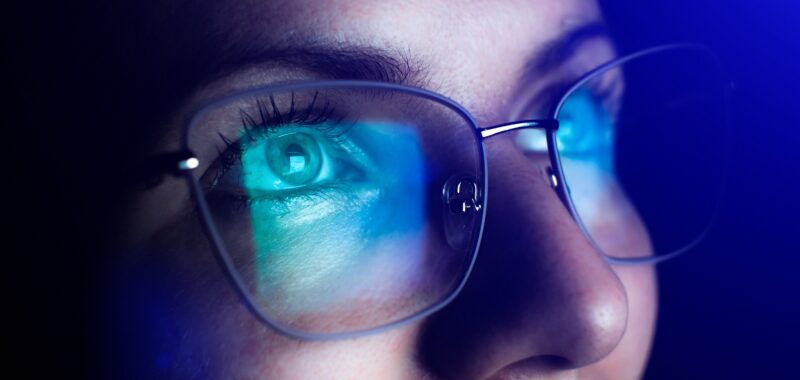
The skin care industry has seen a rise in products marketed to protect against blue light, particularly the type emitted by digital screens, but the validity of these claims is now under the spotlight. According to a report by non-profit organization Truth in Advertising (TINA), numerous brands are advertising blue light-blocking products, claiming that prolonged exposure to screens can cause skin damage.
However, these claims are often based on limited or incomplete scientific research, leaving room for skepticism among experts.
In a recent TINA report, the organization emphasized that, while the concern over blue light is valid, many companies have yet to offer conclusive studies to support the idea that blue light from screens poses a significant threat to skin health. “The evidence behind the claims remains unclear,” said TINA, pointing out that some companies are relying on general concerns about blue light without properly verifying the potential impact of digital device exposure on skin.
Industry brands and their claims
Several well-known brands have introduced products designed to protect against blue light, including MDSolarSciences and Goodhabit, TINA noted. These companies market their products as solutions to blue light exposure, implying they can prevent issues like hyperpigmentation, accelerated aging, or general skin damage.
However, TINA’s investigation reveals a critical gap between marketing and evidence. MDSolarSciences, for example, claims to have “scientifically proven” formulas like its Daily Perfecting Moisturizer SPF 30, which is marketed as being “packed with Antioxidants to combat the effects of blue light,” according to the company’s website. TINA, however, highlighted in its report that no studies from MDSolarSciences were readily available to back these assertions.
Similarly, Goodhabit markets its products around the concept of environmental protection, and states on its website that “all of GoodHabit’s products are infused with our proprietary BLU5 technology, which defends your skin against blue light in five different ways.” However, the TINA report noted, Goodhabit offers no clear proof that blue light-blocking capabilities exist in their formulations.
“Companies are marketing products as able to protect the skin from the purported harms of blue light from various sources, including screens,” TINA reported, but added that the research connecting blue light from screens to significant skin damage is lacking. TINA also cited a 2019 study which found that while blue light from sunlight can cause hyperpigmentation, the type of blue light emitted by screens is not likely to cause comparable effects.
Expert opinions and consumer caution
Dermatologists have also weighed in on the debate, with some voicing concerns about the premature marketing of blue light-blocking skin care. “The effects of blue light on the skin are still being researched,” said one dermatologist cited in the TINA report.
While some early studies suggest that blue light may play a role in skin aging, particularly when combined with UV exposure, the overall impact of screen-based blue light remains unclear. TINA’s report pointed out that while some research links blue light from sunlight to skin damage, it does not conclusively extend the same findings to the low-intensity blue light from screens.
Given the lack of robust scientific backing, TINA urged consumers to approach blue light-blocking skin care products with caution. “Consumers should verify product claims by checking for reliable research and third-party validations,” the organization advised.
This is particularly important as the demand for blue light-blocking products grows, driven by the increasing time spent in front of screens due to modern work and leisure habits.
Implications for skin care manufacturers and suppliers
For manufacturers and suppliers within the cosmetics and personal care industry, the debate surrounding blue light-blocking claims represents both a challenge and an opportunity. With the rising demand for products that address modern lifestyle concerns—such as prolonged screen exposure—there is a clear market incentive to innovate in this space.
However, as TINA highlighted, the scientific rigor behind these claims must be solid if brands are to maintain consumer trust. Companies may benefit from investing in more comprehensive research and transparent marketing to avoid potential backlash from regulators and consumer watchdogs.
In an era where consumers are more informed and skeptical of bold marketing claims, adhering to scientific evidence is crucial. As TINA concluded, “until more research is available, consumers and manufacturers alike should exercise caution when it comes to blue light-blocking skin care products.”

